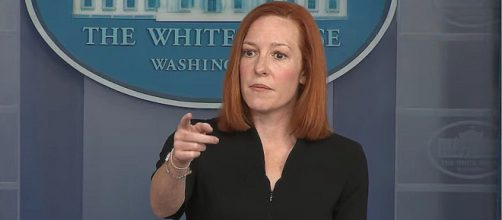Space policy was a rare example of an area in which President Joe Biden shared his predecessor's outlook, Donald Trump, White House Press Secretary Jen Psaki said recently.
At a March 30 White House press briefing, it was noted that Biden was continuing three of Trump's initiatives – the U.S. Space Force, the revival of the National Space Council, and NASA's Artemis program, which was aiming to put the first woman and a man on the moon by 2024. Psaki was asked whether space policy was an area where the Biden administration found itself in rare agreement with Trump.
Psaki replied, "I think that - that sounds accurate to me." A transcript of the entire press briefing can be found at whitehouse.gov/briefing-room.
SPACE: White House Press Secretary says space is one of the few areas where President Biden agrees with former President Trump. pic.twitter.com/ytxhLJTztY
— Forbes (@Forbes) March 30, 2021US Space Force
Writing in TheConversation.com, Professor Wendy Whitman Cobb, of the U.S. Air Force School of Advanced Air and Space Studies, complained that most people did not take the new military branch seriously. “Modern pop culture depictions of the Space Force as a joke are distracting from the serious responsibilities the USSF is taking on,” she said in an article that was republished by Astronomy magazine.
She said the public's idea of the Space Force was heavily influenced by science fiction, which actually had hardly anything to do with the new branch of the military. More information can be found at spaceforce.mil.
Science fiction has often had an inspirational and positive relationship with space endeavors. But the new US Space Force is struggling with a pop culture public relations problem. https://t.co/oubkuZEtps
— Astronomy Magazine (@AstronomyMag) March 28, 2021National Space Council
At the press briefing, Psaki said the National Space Council was something that Biden was "excited to keep in place." She said Biden felt the council offered "an opportunity to generate National Space Policy strategies" and "synchronize on America’s space activities at a time of unprecedented activity."
The council has a website space.commerce.gov.
The U.S. Department of Commerce maintains the site. A statement on the site explains that, although the Commerce Secretary is a member of the council, the council itself is not part of the Department of Commerce.
Biden's decision to continue maintaining the council was welcomed by the Coalition for Deep Space Exploration, an organization of businesses and universities. In a Tweet, the organization claimed space was "a crucial priority" for America. It added, "Sustained coordination across multiple federal agencies through the National Space Council will ensure the United States can effectively address existing and emerging issues in space."
CDSE applauds the Biden Administration on its decision to continue the National Space Council.
Our full statement: https://t.co/HlPss1KRZh pic.twitter.com/B6YyxSm9EV
— Coalition for Deep Space Exploration (CDSE) (@XploreDeepSpace) March 30, 2021NASA’s Artemis program
NASA's Artemis program aims to have the U.S.
return to the moon. A statement on the program's webpage explains that a woman and a man, as well as plenty of advanced technology, are expected to land on the moon by 2024.
Finals here we come 🚀
16 undergraduate and graduate team finalists will proceed to the next phase of @NASA’s RASC-AL program, which provides the opportunity to submit innovative concepts to expand human space exploration through the #Artemis program.https://t.co/oX2mM6B0Y7 pic.twitter.com/OmnVo27YbD
— NASA’s Artemis Program (@NASAArtemis) March 30, 2021

